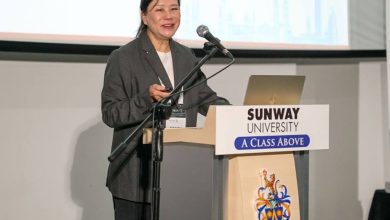Lost in Translation: Beyond the Folklore, Fantasies and Fairy Tales of Global Higher Education

“By three methods we may learn wisdom: First, by reflection, which is noblest; Second, by imitation, which is easiest; and third by experience, which is the bitterest.” Confucius
Indeed, global online and distance learning and internationalisation are at the crossroads. The unexpected global Covid-19 health pandemic took the entire world by surprise with catastrophic economic, cultural, political, logistical and technological ramifications for colleges and universities worldwide. And, whilst we navigated these unchartered waters, educators everywhere were convinced that digital online delivery would ride in on the white horse and save the day. A fantasy in the making or so it seems if you listen to online advocates singing the same song in the choir.
The reality was quite different and most organisations faced problems of training, support, design, and leadership in responding online to the pandemic. Indeed, digital tools are a panacea for resolving educational dilemmas when they work and are deployed well. The folklore and the fairy tales had begun. As Confucius reminds us experience can often be a harsh teacher. We have applied this lesson of wisdom in the current pandemic.
We have reflected upon our responses; we have imitated others and even pulled a negative term out of obscurity – ‘remote learning’– a very demeaning word that was discarded 30 years ago. It seems to have been brought back as a way to discredit the pandemic online response from ‘real’ quality online delivery.
Of course, it was the only response available to the profession to deliver education and yet some of our colleagues used the pandemic to take the quality high road, criticise our fellow colleagues, and quite frankly embarrass our profession. On a more humorous note, we even kidnapped the term ‘pivot’ which is actually a hundred-year old term from the game of basketball. Michael Jordan would be speechless at our desperation for crisis words.
And finally, we faced the harsh experience which has illuminated that the future is not simple and whatever the new normal (nobody really has defined this yet) the world and education will never be the same.
At first glance, it would be easy to blame everything on the pandemic. A delightful rationale albeit fairy tale if it were true. The reality is there were undercurrents already occurring and the winds of change were well on their way to global higher education. Here are just a few:
First, online delivery has never been a large market globally. Most host nations have invited providers in-country for f2f teaching or built branch campuses. The data have shown that most online universities, including top open universities serve primarily students in their home country. This is true for the Open University UK, Athabasca University (Canada), University of South Africa (Unisa), Indira Gandhi National Open University (India), Hellenic Open University (Greece) and many more.
In all cases, international online enrolment is less than 7% of total enrolments. Note: Some institutions have many international distance students but they are mostly served via correspondence study, not online, (University of London International Programme = 50,000) for example.
Secondly, in 2010 this author as Chief Executive of The Observatory on Borderless Higher Education (OBHE) in London suggested that over the next decade a ‘New Global Regionalism’ would emerge where international students would have more options to remain in their home geographic region. In areas such as Asia, Persian Gulf, South America, Eastern Europe, and Africa where more and more institutions were being recognised in the Global University Rankings, adopting digital technologies, and having the advantages of language and cultural similarities, students may strongly consider staying home.
Does this mean that international students would not still go to the UK, U.S., Australia, Germany, France and others? No, but let’s be real, most of these young people go so they can take advantage of the degree but all also the fun in the sun of these top destination choices.
Thirdly, language and culture matter and they matter more in 2020 than they did in 2010; and will matter even more in 2030. What does this mean? It means no matter where you are located globally, your language, culture, history, heritage, and humanity all matter, all are worth preserving and your educational futures should be built around these core national attributes.
Academic imperialism by western HE providers will only occur if you allow it to occur. You can build global partnerships, partner with the great Western universities, and still retain the essence of what defines your nation, its culture and its regional status. Embrace this heritage, promote it, share it with partners and you strengthen your region and the human condition.
Fourthly, online delivery plus the adoption of open content and the unbundling of HE credentials in concert with the development of Micro-Credentials will be ubiquitous in your region and globally. These three strategic directions can and should be pursued simultaneously nationally and regionally. The New Global Regionalism is there for you to develop in your region. By doing this your educational ministries, universities, and private sector partners will be in a stronger position to negotiate and foster global partnerships.
As we emerge from the pandemic, each university will need to make complex decisions about its future. Where do you begin? Let me offer the follow suggestions:
- Where is your university going? If you don’t know where you are going it doesn’t much matter which path you take. Do you want to be a digital online institution or at minimum capable of online delivery nationally and regionally? Can you justify global partnerships to your home community? Your stakeholders expect you to serve your local community and nation. What is the benefits continuum of going global for your institution? Is international student recruitment still a priority? Is sending your own students abroad still a priority? Why or why not?
- Is the New Global Regionalism relevant within your own region? What role can your institution play in building this regional capacity? Does it offer expanded opportunities for your students to remain at home and take advantage of exchanges and study abroad opportunities within the region? Does this enhance the status of your institution in the region and globally?
- Where does English stand in your corporate and educational sectors? We all know that English is the global language for business and in many regions of the world it is the bridge language where many languages are spoken (Europe, Middle East, parts of Asia, etc.). Moreover, what are the perceived challenges for native learners in your country to learning in English? In online English programmes the probability of ‘lost in translation’ is even more prevalent. Again, language matters for learning.
- Power in Numbers – Partnerships within your region can be powerful catalysts for leveraging new opportunities, limiting risk, sharing resources and taking advantage of collaborative benefits. We often look for partners who think and look alike – instead, look for partners in which you bring similar but different capacities to a complimentary collaboration. In fact, you may find some of your key competitors may actually be viable partners if you look close enough. If you choose to partner there are two things to ensure you do.
First, make sure you have an exit strategy if a partnership does not work. You may go in very positive for a sound collaboration but if it doesn’t work have both a logistical and legal exit strategy.
Secondly, for any endeavour as an institution or in partnership, set the criteria for cutting your losses and getting out. Leaders in education are terrific at creating things; they are much less successful removing their institutions/units from partnerships that simply are not working. The great deception is that if we just work harder it will work seldom is a valid truism.
A closing comment on the concept of the massification of HE using online education whilst maintaining quality and low cost. Balancing access, quality and cost is a complex, interconnected blend of variables that are often over simplified. The traditional axiom that increasing access increases revenues and lowers costs is flawed. Why?
First the model works great if you have an unlimited central funding source to fund all the students you can serve. The problem is as many open universities have learned is when that central funding source is reduced or cuts off pipelines of discretionary funding, there is simply not enough resources to maintain services, quality, and infrastructure. And then come course fees which in turn may exclude access for the very population of students these open institutions were created to serve. This reality should put any fantasy and fairy tale to rest about the economics of mass education.
A second factor is the rate of growth. There have been numerous examples where the rate of student growth has been exponential and the institution simply could not keep up. It becomes a catch-up game, staff morale is depleted, workloads increase, and the provision of services, qualified and well-trained faculty, and infrastructure and digital technology costs simply cannot be maintained. Access is important; access with quality is even better.
In sum, focus on quality if you decide to go down the online yellow brick road. You must manage growth and not let it manage you. You may have higher upfront costs but if you set the quality bar high from the outset it becomes your benchmark and hence even if you must charge tuition/fees you can keep these low. Massification of online programmes of low quality and low cost serve no-one well; and you will be driven from market by competitors who plan their growth and development from the outset to ensure quality at a fair price. Life in the fast lane is the new normal for online education.
Written by Dr. Don Olcott, Jr., FRSA, Global Consultant (Romania) and Honorary Professor of Leadership and Online Education, University of South Africa (Unisa); Professor of Leadership and ODL, University of Maryland Global Campus (UMGC)




